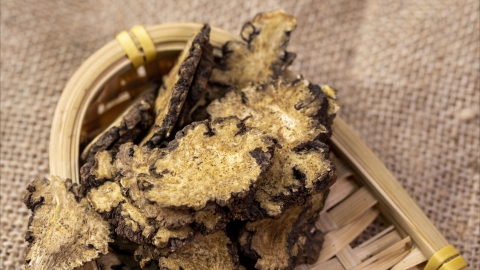What are the functions and effects of Tianma (Gastrodia elata) and Chuanxiong (Ligusticum chuanxiong)?
Under normal circumstances, when Gastrodia (Tianma) and Ligusticum (Chuanxiong) are commonly used together as traditional Chinese medicinal herbs, their main functions and effects include relieving wind-induced pain, promoting blood circulation and removing blood stasis, alleviating dizziness, improving limb numbness, and assisting in the regulation of discomfort associated with headaches. A detailed explanation is as follows:

1. Relieve Wind-Induced Pain: Gastrodia is effective in extinguishing wind, stopping convulsions, and relieving wind-related pain through meridian regulation, while Ligusticum promotes blood circulation, regulates qi, and alleviates pain by dispelling wind. When used together, they enhance the effect of relieving pain caused by wind pathogens or wind combined with blood stasis, such as headaches and joint pain. Through synergistic action, they help expel wind pathogens, unblock obstructions, and reduce pain.
2. Promote Blood Circulation and Meridian Flow: Ligusticum promotes blood circulation, regulates qi, and resolves blood stasis, while Gastrodia facilitates meridian flow. Together, they better address issues of poor blood circulation and blocked meridians, making them suitable for treating localized distending pain and impaired limb movement caused by blood stasis or obstructed meridian flow.
3. Alleviate Dizziness: Gastrodia is a commonly used herb for relieving dizziness and calming wind-related vertigo, while Ligusticum promotes blood circulation and qi flow, thereby improving blood supply to the brain. When combined, they are suitable for treating dizziness caused by wind pathogens disturbing the head, insufficient qi and blood, or impaired cerebral blood supply.
4. Improve Limb Numbness: Gastrodia can unblock meridians and relieve pain caused by bi syndrome, while Ligusticum promotes and nourishes blood circulation to nourish the limbs. When used together, they assist in improving numbness caused by blocked meridians and insufficient nourishment of the limbs by qi and blood.
5. Assist in Regulating Headache-Related Discomfort: For common types of headaches such as migraine and tension-type headaches related to wind pathogens or blood stasis, combining Gastrodia and Ligusticum can synergistically dispel wind, promote blood circulation, and relieve pain, thereby assisting in reducing headache severity and frequency of attacks.
It is also important to be aware of contraindications and precautions during use. For example, individuals with yin deficiency and excessive internal heat or a tendency to bleed should use these herbs cautiously. Their combination should follow professional guidance to control dosage and ensure safe and effective medication use.




